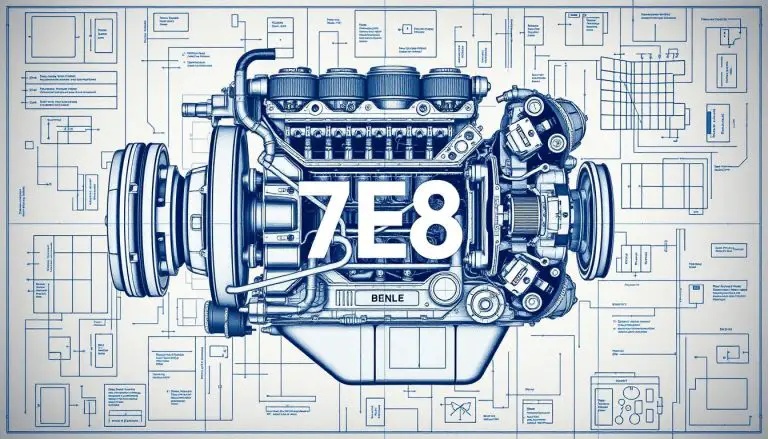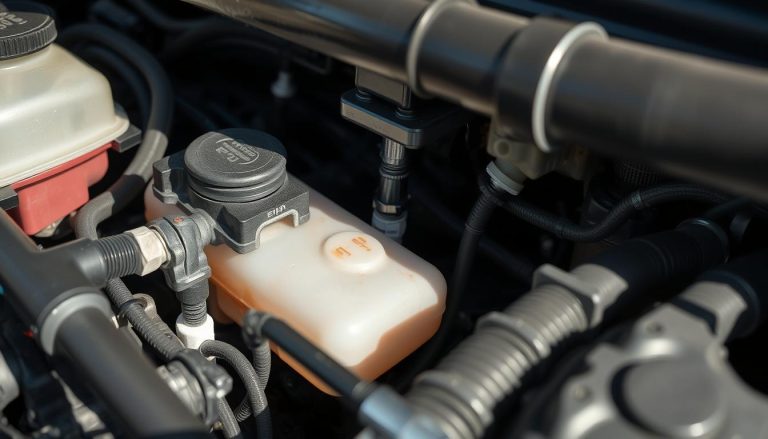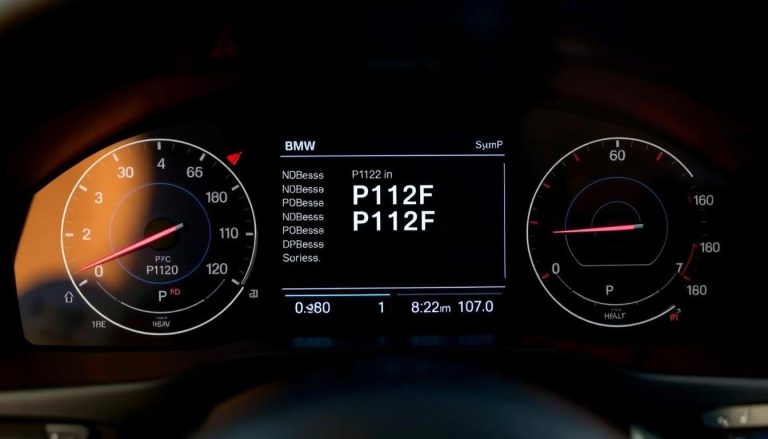When the check engine light flickers to life on your dashboard, among the many codes that could trigger this ominous glow is the P0268 code, which specifically points to issues with Cylinder 3’s injector circuit. If you’ve found yourself scratching your head and wondering what this means for you and your car, you’re in the right place.
From understanding its implications to identifying symptoms and exploring repair solutions, we’re diving deep into everything you need to know about the P0268 code.
What does the P0268 code mean?
The P0268 code indicates a problem with the injector circuit for Cylinder 3 in your engine. It falls under the category of powertrain trouble codes, specifically related to fuel delivery and injection systems.
When this code is triggered, it typically implies that there’s an abnormality in the electrical signal or performance from the fuel injector for that particular cylinder. This could mean either too much current is flowing through, or perhaps there’s a short or open circuit somewhere along its path.
Most modern vehicles use sophisticated computer systems to monitor various components. The Engine Control Module (ECM) keeps track of injector operations and flags any irregularities. When it detects issues with Cylinder 3’s injector circuit, you’ll see this diagnostic trouble code pop up during a scan. Understanding what this means can help you address potential issues before they escalate into more serious problems.
What parts can be affected by P0268 code ?
When the P0268 code pops up, several parts of your vehicle may be impacted. The primary suspect is the fuel injector for cylinder 3. An issue here can lead to incorrect fuel delivery.
Wiring and connectors associated with the injector circuit are also at risk. Damaged or corroded wires can disrupt electrical flow, causing erratic performance.
The engine control module (ECM) plays a crucial role too. If it misinterprets signals from the injector circuit, you could face further complications down the line.
Additionally, issues may arise in related components like ignition coils or other injectors if they share circuitry with cylinder 3. A thorough inspection is essential to pinpoint affected areas accurately.
Addressing these problems early can save you from extensive repairs later on while ensuring your vehicle runs smoothly.
What are the possible causes of a P0268 code?
The P0268 code often stems from issues related to the fuel injector circuit. A short circuit in the wiring can lead to an elevated voltage, triggering this error. Corrosion or damage around electrical connectors may also contribute.
Another common cause is a malfunctioning fuel injector itself. If it fails to operate correctly, it can affect engine performance and throw a P0268 code.
Faulty engine control modules (ECMs) are less frequent but still possible culprits. When these units misinterpret signals due to internal failures, they may falsely detect problems with the injector circuits.
Additionally, low fuel pressure caused by a weak fuel pump might create similar symptoms that result in this trouble code appearing on your dashboard. Keeping all aspects of your vehicle’s fueling system in check helps mitigate such risks.
What are the common symptoms of a P0268 code?
When your vehicle triggers the P0268 code, you might notice several telltale signs. A rough idle is often one of the first symptoms. You may feel vibrations or instability when your engine runs.
Poor acceleration can also occur. If you press the gas pedal and don’t get a response, it could be related to this injector circuit issue.
Another common symptom is decreased fuel efficiency. When injectors aren’t performing correctly, your car can burn more fuel than usual.
Check engine lights are frequent companions of the P0268 code as well. This warning light will likely illuminate on your dashboard, urging immediate attention.
In more severe cases, stalling can happen unexpectedly while driving. This sudden loss of power poses safety risks and demands swift action from drivers to diagnose the problem accurately.
What are the diagnostic steps for a P0268 code?
To diagnose the P0268 code, start by connecting an OBD-II scanner to your vehicle’s diagnostic port. This will help you confirm the presence of the code and check for any additional trouble codes that might be related.
Next, inspect the wiring and connectors associated with Cylinder 3’s fuel injector. Look for frayed wires, loose connections, or signs of corrosion that could disrupt electrical flow.
Then, test the resistance of the injector itself using a multimeter. Compare your readings against manufacturer specifications to determine if it’s functioning correctly.
If everything checks out electrically, consider testing the fuel pressure to ensure adequate supply to all injectors. A malfunctioning fuel pump can indirectly trigger this issue as well.
Clear any stored codes and take the car for a test drive. Monitor engine performance closely during this process to see if symptoms reoccur or new codes appear.
How serious Is the P0268 Code? Can I continue driving with the P0268 code?
The P0268 code indicates a high voltage issue in the cylinder 3 injector circuit. This can lead to several performance problems, particularly with engine efficiency and power.
Driving with this code present is not advisable. The malfunctioning fuel injector can cause misfires, rough idling, or stalling. These symptoms compromise vehicle safety and overall drivability.
Continuing to operate your vehicle may exacerbate the issue. Fuel delivery problems could potentially damage other components like the fuel pump or catalytic converter over time.
If you notice warning signs such as reduced engine power or poor acceleration, it’s best to seek professional diagnosis promptly. Ignoring the problem might turn a simple fix into an expensive repair down the line. Prioritizing timely attention to this code will help maintain your vehicle’s health.
What are the repair solutions for a P0268 – Cylinder 3 Injector Circuit High ?
Repairing a P0268 code typically starts with inspecting the wiring and connectors related to the cylinder 3 injector. Look for signs of wear, damage, or corrosion that could disrupt electrical signals.
If the wiring seems intact, testing the injector itself is crucial. A faulty fuel injector may need replacement if it fails to operate within specified parameters.
In some cases, replacing an engine control module (ECM) might be necessary if all other components are functioning correctly but still trigger the code. This step often requires professional diagnostics due to its complexity.
Additionally, check for any vacuum leaks or issues with fuel pressure that can affect injector performance. Addressing these underlying problems can help prevent future codes from appearing.
After making repairs, it’s important to clear any stored fault codes and perform a thorough test drive to ensure everything operates smoothly again.
What other codes may be related to P0268?
When dealing with the P0268 code, it’s essential to be aware of other related trouble codes that might surface. Often, these codes can indicate broader fuel injector issues or problems within the engine management system.
For instance, you may encounter P0203, which points specifically to injector circuit issues in cylinder 3. This code directly ties into the concerns raised by P0268 and indicates a need for closer inspection.
Additionally, P0219 may crop up, suggesting potential problems with vehicle performance due to misfires or poor fuel efficiency linked to injection circuits.
Codes like P0300 through P0304 also reflect engine misfire conditions across different cylinders and could exacerbate symptoms associated with a high injector circuit signal in cylinder 3.
Keeping an eye on these related codes is vital for effective diagnosis and repair strategies.
How much does it cost to diagnose and repair a P0268 code?
The cost to diagnose a P0268 code can vary widely. Typically, you might expect to pay between $100 and $200 for a professional diagnostic service. This fee often includes labor, as well as the use of specialized equipment to pinpoint the issue.
Repair costs can also fluctuate based on what is found during diagnosis. Simple fixes, like replacing faulty wiring or connectors, may set you back around $50 to $300. If the injector itself needs replacement, however, you’re looking at anywhere from $200 to over $1,000 depending on your vehicle’s make and model.
Labor rates play a significant role in total expenses too. High-end shops in urban areas may charge more compared to smaller garages in rural locations. Always get estimates before proceeding with repairs so you know what you’re dealing with financially.
How long does it take to diagnose and repair code P0268?
The time it takes to diagnose and repair the P0268 code can vary significantly. It largely depends on your vehicle’s make and model, as well as the experience of the technician.
Generally, a skilled mechanic might spend about an hour diagnosing the issue. This includes scanning for codes, visual inspections, and performing tests on relevant components.
Once diagnosed, repairs could take anywhere from one to several hours. If it’s just a wiring issue or a connector that needs fixing, it may be quick. However, if you need to replace fuel injectors or other parts, expect more extensive work.
Keep in mind that waiting times can extend based on parts availability and shop workload. Always ask your mechanic for an estimated timeline before starting any repairs to better understand what you’re facing.
Is the P0268 code specific to certain car makes or models?
The P0268 code is not limited to specific car makes or models. It can appear in a wide range of vehicles, particularly those equipped with diesel engines.
Many manufacturers utilize similar fuel injection systems, which increases the likelihood of encountering this trouble code across different brands. Commonly affected vehicles include popular names like Ford, Chevrolet, Dodge, and Volkswagen.
However, each automaker may implement unique components and configurations that influence how the P0268 manifests. This means symptoms and repairs might vary depending on the vehicle’s design.
It’s important to consult your vehicle’s service manual for precise information about its injector circuit specifications. Understanding these nuances can aid in accurate diagnosis and effective repair strategies tailored to your specific model.
How can I avoid a P0268 code?
Preventing a P0268 code starts with regular vehicle maintenance. Regular oil changes, fuel filter replacements, and cleaning the fuel injectors can significantly reduce issues.
Pay attention to your vehicle’s warning lights. If something seems off, address it promptly. Ignoring minor problems can lead to bigger ones down the road.
Use high-quality fuels and additives designed for your engine. Poor quality gasoline may contain contaminants that affect injector performance.
Check electrical connections periodically. Loose or corroded wires can easily cause injector circuit malfunctions.
Consider having your car serviced by professionals who understand modern engines. They can spot potential concerns before they escalate into serious codes like P0268.
What happens if you ignore a P0268 code?
Ignoring a P0268 code can lead to several complications. The cylinder 3 injector circuit high issue means that the fuel delivery system is not functioning properly, which can affect engine performance significantly. If left unaddressed, you may experience decreased power and poor fuel efficiency.
Over time, this could lead to more severe problems such as engine misfires or even damage to other components like the fuel pump or wiring harness. These issues can escalate repair costs substantially, turning what might have been a simple fix into a major overhaul.
Additionally, driving with an unresolved P0268 code increases emissions output. This could result in failing emissions tests if your vehicle is subject to them. Ignoring warning codes also puts you at risk of being stranded due to potential breakdowns related to injector failures.
Pay attention when your car’s diagnostic system signals trouble via codes like P0268. Taking timely action not only ensures smoother operation but also helps maintain overall vehicle health and longevity.


